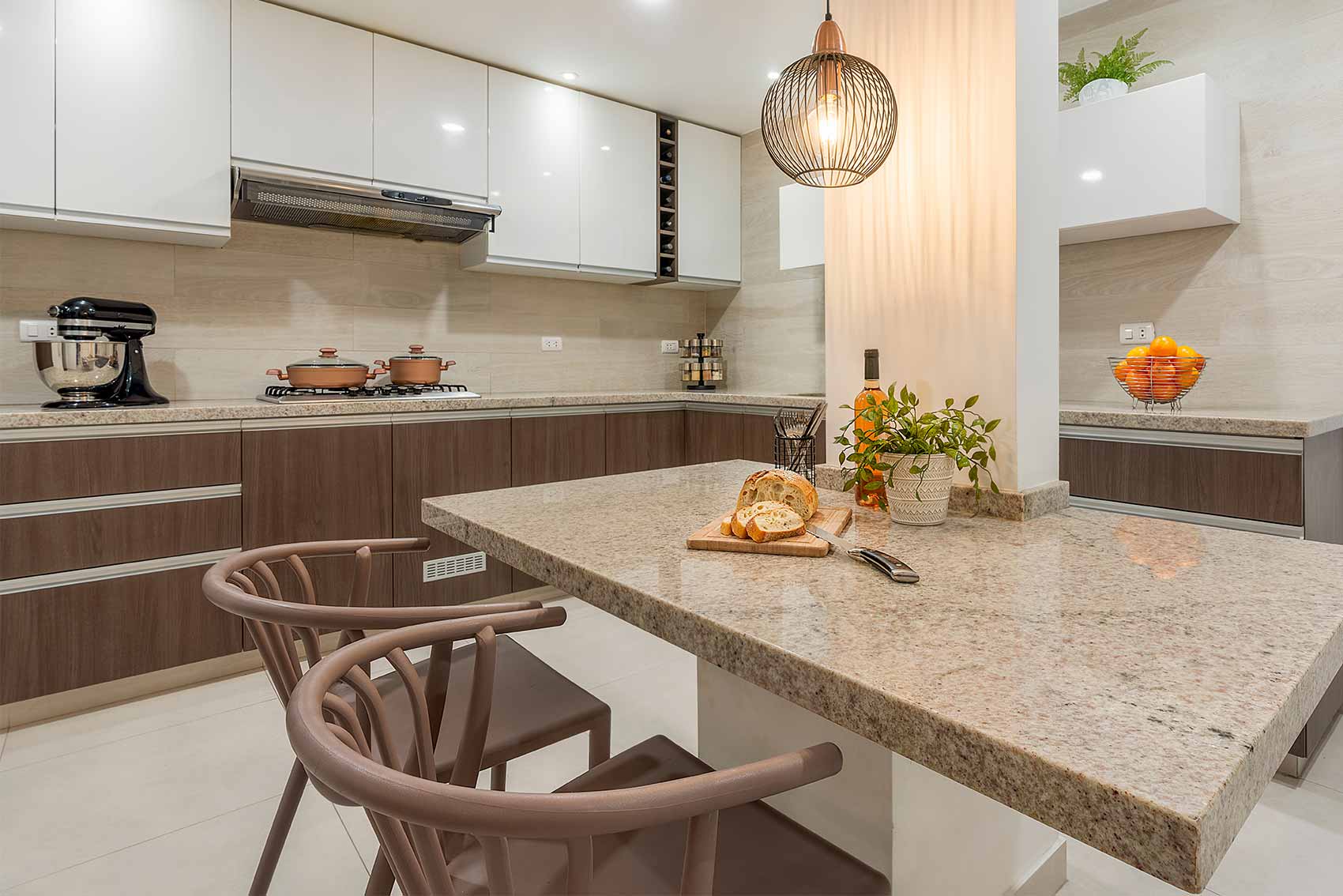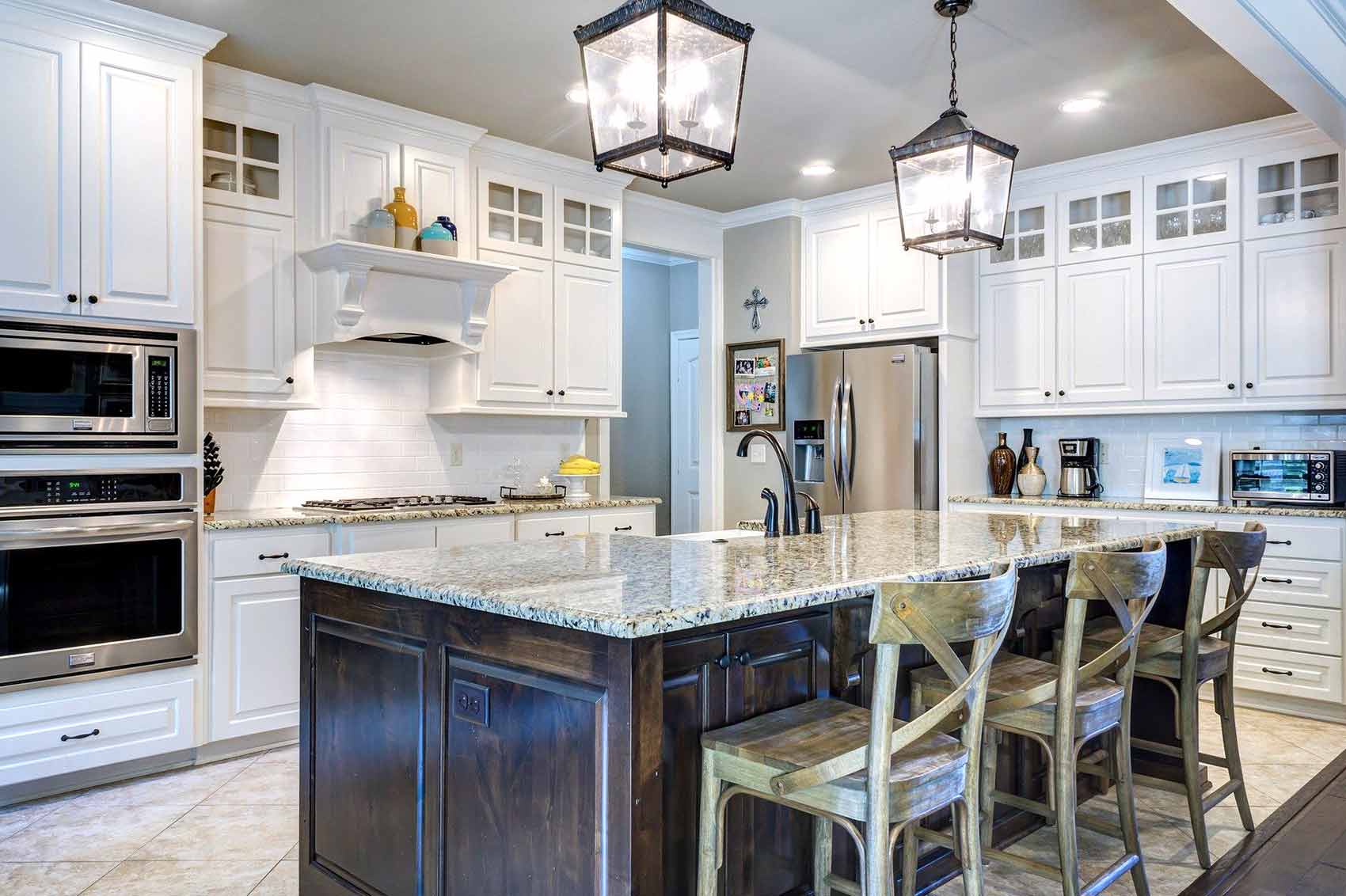2023 will definitely be the year of quartz for kitchen counters! In addition to being versatile and durable, it offers a superb natural look that is easy to maintain. Resistant to heat, mold, cracks, scratches, and stains, this idyllic portrait is complemented by a wide variety of colors and textures available.
But all these qualities come with a price! If you are already in love with this material, take the time to educate yourself on the factors that influence its cost, so you know what to expect.
What influences the price of a quartz countertop?
The type of stone
Quartz is composed of 70 to 90% silica powder, and between 10 to 30% of a variable mixture depending on the manufacturer. These proportions are at the origin of the many colors, shades and styles of the material, but also of its price! According to its different components and the percentage of pure quartz, the cost of the quartz piece will not be the same. The more quartz and rare minerals you have, the higher the price will be. It is therefore a question of aesthetics here, because the solidity remains impressive, whatever the composition.
The colour
You will have understood: the choice of colors for quartz is impressive, and will have an impact on the price. Colors that will be called “base” like whites and grays will be more affordable than rarer or original shades.
The size
It makes sense, but it should be emphasized all the same: the larger your countertop, the more stone you will need.
Project complexity and labor
Quartz countertop prices include the following labor items, which represent approximately 50% of the total project cost:
- Laser measurements.
- Sections.
- Sink holes.
- Faucet holes.
- Polishing.
- Installation.
But if the installation requires custom-made (which is often the case), other adjustments, more delicate cutouts… the price will also adapt accordingly, and rarely downwards!
Let’s talk price!
Finally, how much should you budget? It is possible to classify quartz countertops into three categories:
- Low end, between $55 and $70 per square foot.
- Standard, between $70 and $110 per square foot.
- High end, between $110 and $200 per square foot.
Of course, these figures remain averages, and if they can be good indicators, they cannot be applied as such to your project. Perhaps you would be tempted to install your counter yourself? If so, is it a relevant idea, and is it really more economical?
You could actually save on the purchase of materials and labor. That said, you may be missing out on a wider range of options, advice, and the peace of mind of a professional and safe installation. Indeed, most installers offer you a parts and labor warranty, expertise and high standards of work. And if your desire is to have a beautiful, solid countertop that can enhance your kitchen for several years, the home design may not be the ideal solution.
In order to have the right time on your future quartz countertop, come and meet the specialists at Castel Granite & Quartz. Experts of course, but above all passionate, they will guide you towards the best choices and the best options according to your desires and your budget.



